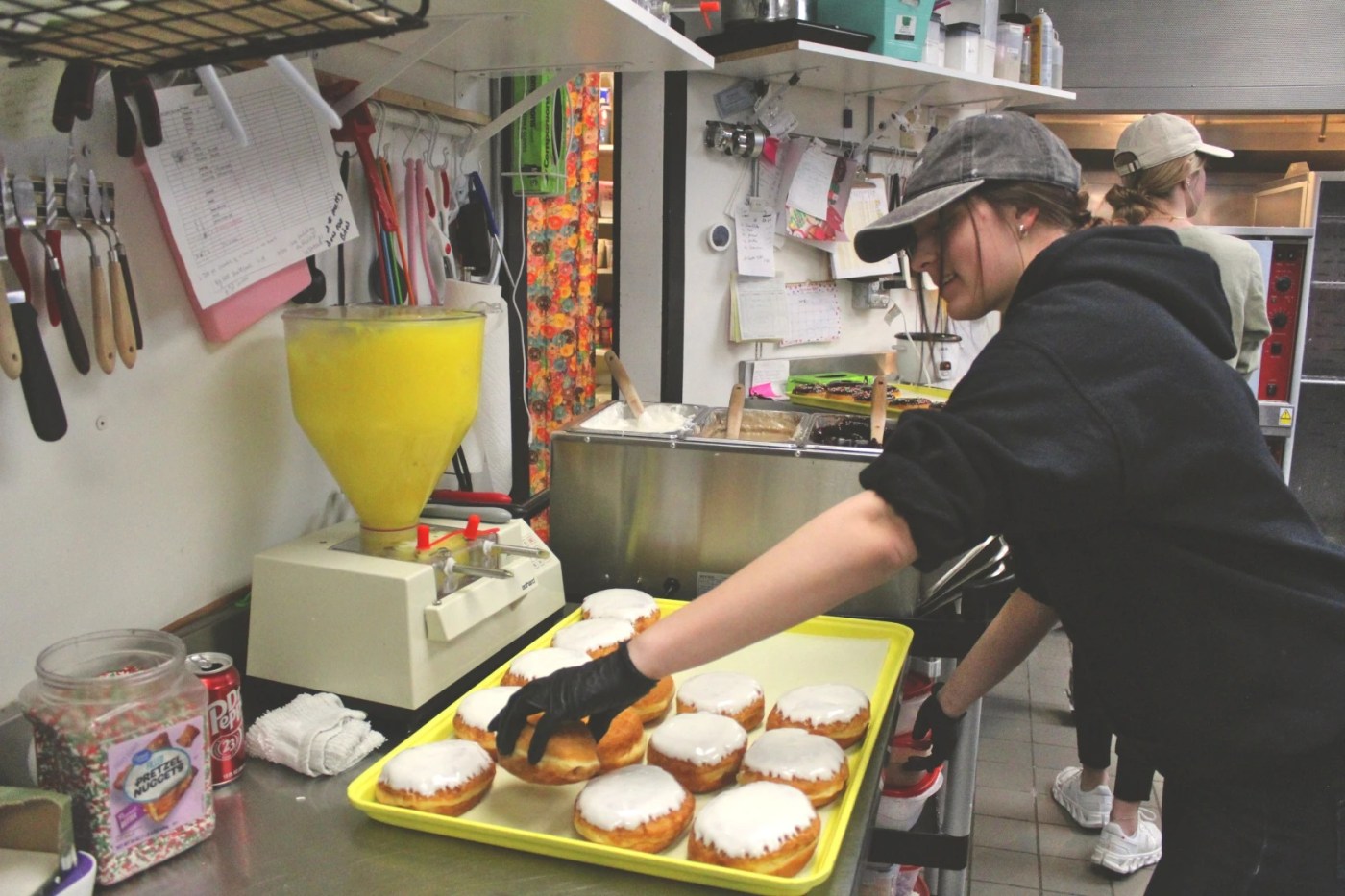As the festival of Diwali approaches, South Asian businesses are grappling with rising import costs that threaten to impact affordability for customers. With tariffs reaching as high as 50%, storeowners are seeking ways to keep prices manageable while still offering traditional goods essential for the celebrations.
At New India Bazaar on Polk Street, Hari Bhatt, 28, manages a family-run store that has served the community for over 30 years. Regular customers are increasingly faced with difficult choices, such as whether to buy essential items like low glycemic-index Basmati rice or a beloved Bengali dessert for their families. The surge in prices, largely due to tariffs imposed on goods from South Asia, has made such decisions more challenging.
Bhatt notes that the cost of staples, including spices, teas, and traditional snacks, has risen significantly. For example, the price of a small pack of Parle-G biscuits, a popular snack enjoyed with tea, has jumped from 35 cents to 50 cents, reflecting a 43 percent increase. With approximately 90 percent of their inventory sourced from India, New India Bazaar and similar stores face tough decisions about whether to absorb these costs or pass them on to consumers.
To mitigate price hikes, the Bhatt family has stockpiled non-perishable items, including traditional cookware, but seasonal goods specific to Diwali present a challenge. Diwali, celebrated on November 13, 2023, marks a time of prosperity and is one of the most significant festivals in the Indian calendar. During this five-day celebration, items like clay lamps, traditionally lit with oil or clarified butter, have seen price increases of 12 to 20 percent depending on the retailer.
Despite the tariff-driven challenges, Bhatt remains optimistic about Diwali sales. “People may be more aware of prices this year, but we Indians love to celebrate,” he remarks. The festival season often sees consumers eager to connect with their culture, which may lead to continued spending, albeit possibly at lower amounts.
In the Mission District, Sajad Shiek and Avik Chattopadhyay at Indian Spices and Groceries have opted to buy much of their inventory locally to avoid rising import costs. Even so, they have had to raise prices, with a pack of four popular items increasing from $4.99 to $5.99, a 20 percent hike that comes after their wholesale distributor absorbed a portion of the tariffs.
Meanwhile, Manisha Gurung, who owns Manisha Fashion Collection near Chinatown, has also felt the impact of increased costs. Originally from Nepal, Gurung imports traditional Indian attire directly from India during the festival season. This year, shipping costs have risen by $50 per box, leading to a 5 percent increase in her prices. “Customers understand that it’s because of tariffs, and they continue to buy because our clothes are unique in the city,” she explains.
In the Upper Haight, Sonu Bhamu, owner of Jalebi Street, plans to absorb increased costs for now, hoping for a resolution in trade talks between the United States and India. The U.S. is India’s largest foreign market, and the 20 percent decline in Indian goods exports in September has raised concerns about the availability of favorite ingredients.
Chef Pujan Sarkar of TIYA, a Michelin-recognized restaurant, emphasizes the need for creativity during these times. With certain ingredients unavailable due to tariffs, he has adapted his menu by using locally sourced items while preserving the essence of Indian cuisine. Similarly, Chef Srijith Gopinathan at Copra has adjusted his offerings to navigate the challenges posed by high tariffs, although he continues to import King Mackerel from India despite an 18 percent price hike.
As the community gears up for Diwali, the resilience and adaptability of South Asian businesses are evident. While challenges abound, the spirit of celebration remains strong, reflecting a commitment to cultural traditions even in the face of rising costs.







